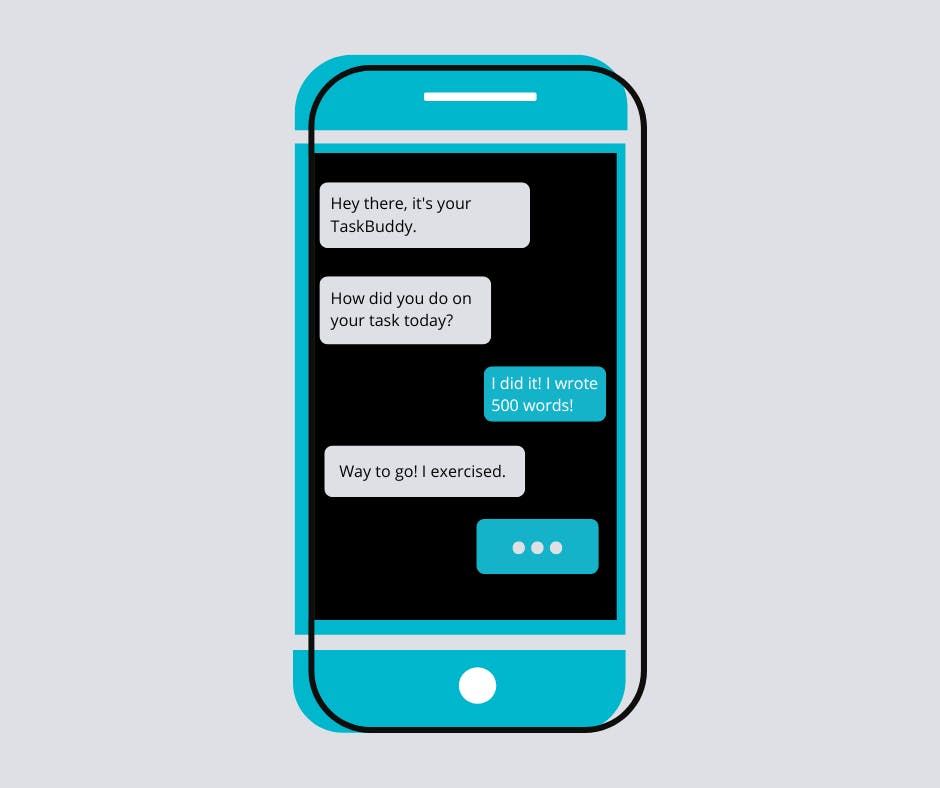
Who (or what) makes you write when you have no boss or publishing contract with a looming deadline? No one is holding a proverbial gun to your head, in other words. Any one of several things could be what makes you write. Purpose, motivation, and discipline all can, but for the times that they wane, we can choose to use accountability. Being accountable to someone can be the best tool for nonfiction authors when it comes to productivity.
Yes, intrinsic motivation is best and natural, as we find mentioned in books such as Drive by Daniel Pink. We all should be intrinsically motivated. Having our drive come from within us is ideal. Some people are just not in that habit yet, but they still want or need to get their writing done.
Writing a book is a long-term project, and without external motivation or check-ins, it’s easy to procrastinate or lose focus, whether you are extrinsically or intrinsically motivated. By introducing accountability into your writing process, you can stay consistent, overcome obstacles, and achieve your goals. Here’s why accountability matters and how to incorporate it into your writing life.
Why Accountability Is Crucial for Writers
Increased Productivity
When you know that someone is tracking your progress, you’re more likely to stick to deadlines and maintain momentum. You will have to answer to a partner or group, and if you care about keeping your word, that makes you write. When people participate in our writing S.P.R.I.N.T.s, they double or triple their productivity. When the timer is ticking and you’ll have to account for how you did once it dings, you focus and produce.
Support and Encouragement
Accountability partners or groups can offer constructive feedback, celebrate your wins, and help you navigate challenges. They provide a supportive environment where you can share your goals and receive helpful feedback on your work, which can help you identify areas for improvement and grow as a writer. These partners or groups also serve as a source of motivation, celebrating your wins—big or small—and inspiring you to keep going.
Additionally, they can be invaluable when you encounter challenges, offering fresh perspectives, practical advice, or simply a listening ear to help you stay on track. Whether it’s a one-on-one partnership or a larger writing community, having accountability can transform a solitary process into a collaborative and productive experience.
Reduced Procrastination
Sharing your goals publicly or with a trusted partner creates a sense of responsibility. It’s a lot harder to justify putting things off. Having someone to be accountable to often makes you write when you would otherwise put it off.
Higher Chance of Follow-Through
Having someone to answer to ensures that you stay on track even when your motivation fades or life gets busy. We might intend to write, but then everything in the world tries to get in the way. It’s far too easy to let it slide one chaotic day, but then a day becomes a week, becomes a month, and then it’s been years since you worked on your writing, and you can’t even remember the best nonfiction book ideas you had. Turning intentions into action keeps your ideas in your mind and adds to your word count, and that’s a good thing. You can’t revise what doesn’t exist.
Ways to Build Accountability Into Your Writing Process
1. Join a writing group.
Writing groups range from worse than useless all the way to amazing. A writing group can provide a supportive community of like-minded authors who can share advice, feedback, and encouragement. Accountability makes you write when and how much you commit to. You know you are going to answer to the group, and you all will help each other. Regular check-ins can keep you on schedule. A group we recommend is The Profitable Writer, led by Kent Sanders.
2. Find an accountability partner.
Whether or not you join a group, you might want to find an accountability partner. Choose someone who understands your writing goals and is committed to helping you succeed. Schedule regular updates to discuss progress, challenges, and next steps. A fellow nonfiction author could become your partner, and you could exchange chapters or progress updates weekly.
A $10/mo service called TaskBuddy Club fills the role of an accountability partner who will check in with you up to three times a week. Club member Yvette D. says, “TaskBuddy makes you write more while making it fun.”
For even more help that makes you write, join TaskBuddy Club’s higher tier to gain access to work/writing SPRINTs.
3. Hire a coach or mentor.
Working with a nonfiction book coach provides professional accountability. They can offer personalized guidance, set deadlines, and help you navigate obstacles. This is not the only option that makes you write, so don’t feel pressure to hire a coach.
4. Use technology for tracking.
If you like to use tech, you can leverage apps like Trello, Notion, or Google Sheets to set writing goals, monitor your progress, and share updates with your accountability network. Some of these are extremely easy to use. Others have a difficuilt learning curve, but users find them worth it in the end. Whatever makes you write more than you were before can be a good choice.
How to Choose the Right Accountability Method
Alignment
Choosing the right accountability method begins with understanding what motivates you. If social interaction energizes and inspires you, joining a group or partnering with another writer may be your best bet. The sense of community can create a supportive atmosphere that encourages progress. On the other hand, if you thrive on independence, consider using structured tools or hiring a coach who can provide guidance without constant interaction. Either way, selecting an approach that aligns with your personality and preferences ensures you stay focused and engaged makes you write even when motivation dips.
Compatibility
When working with a partner, compatibility is crucial to maintaining productivity. Look for someone with similar goals, a complementary schedule, and a positive, encouraging attitude. A misaligned partnership—where expectations clash or communication breaks down—can create frustration and actually hinder progress. This disconnect makes you write less, which defeats the entire purpose of having accountability. A strong partnership, however, fosters mutual encouragement, helping both parties stay on track and inspired to reach their writing goals.
Clarity
Clarity is the foundation of effectiveness in this case. Be specific about what you want to achieve, whether it’s completing a draft, hitting a certain word count, or dedicating a set number of hours each week to writing. When your goals are clear and well-defined, it’s easier to measure success and track progress. Having clear objectives also makes you write more consistently, as both you and your accountability partner or group will know exactly what you’re working toward. This shared understanding keeps everyone aligned and ensures your accountability method drives results rather than creating confusion.
Accountability Strategies That Work
Weekly Check-Ins
Schedule a weekly meeting with your accountability partner, group, or coach to review progress and discuss challenges. Daily is too often for most people, not giving them enough time to make progress, and monthly is too spread apart because it’s easy to let time slip away and end up trying to do it all at once. College-days cramming, anyone? No thanks.
Public Commitments
There is disagreement on whether or not public commitments help or hinder the accomplishment of goals. Some leaders say to tell people before you start. Others say to keep it secret until you’ve accomplished it.
If you want to try it, announce your writing goals on social media or to friends and family. Public accountability can add extra motivation to follow through.
This works especially well and makes you write if you’re an Obliger or Upholder in Gretchen Rubin’s Four Tendencies (not a Questioner or Rebel).
Consequences and Rewards
Create a system where you reward yourself for hitting milestones or face consequences for missing deadlines. A school of human psychology known as Behaviorism teaches us that people work to obtain pleasure and achieve rewards and to avoid punishment, pain, or negative consequences.
Reward: Treat yourself to a fancy dinner after finishing Part One of your nonfiction book.
Consequence: Donate to a cause you dislike if you miss a deadline.
That particular type of self-imposed consequence is known as a commitment device. Jennifer Harshman tells of her experience using a commitment device when she was struggling years ago to wake up before her children and write. Here’s the story she’s shared on several podcasts.
Jennifer wrote a check in the amount of 15% of her household’s annual income and made it out to the worst and most morally objectionable organization she could think of. Then she put it into an envelope addressed to that organization, put that envelope inside another, and mailed that to a friend who lived across the country in a time zone ahead of her.
She called her friend and asked her to be her accountability partner for her goal. She explained that her goal was to get up at 4AM and write before the kids got up. The accountability partner would know whether or not Jennifer got up on time because Jennifer would call her. If she did not get up on time and call 90% of the days in the coming month, the friend was to mail the envelope with the check in it to Kitten Kickers InKorporated.*
The accountability partner was shocked and said, “You’ll go to hell if you support them!”
Jennifer replied that the risk of that would force her to get up on time and write those words, and then her friend understood the assignment.
The friend shredded the envelope on Day 35 because Jennifer got up and wrote every day but one, right on time.
Tracking Progress
Use charts or calendars to visualize your progress. Watching your achievements accumulate can boost morale and maintain focus.
FAQs About How Accountability Makes You Write Consistently
Q: What if I don’t have anyone to hold me accountable?
A: Join an online writing community or hire a professional coach. Many platforms offer virtual accountability groups for authors.
Q: How do I stay accountable when life gets in the way?
A: Communicate with your accountability partner or group about challenges. Adjust deadlines when needed, but stay committed to getting back on track.
Q: Is self-accountability enough?
A: While self-accountability works for some, such as Questioners and Upholders in Gretchin Rubin’s Four Tendencies, most writers benefit from external accountability at times to stay consistent and motivated.
Final Thoughts
Accountability makes you write more than you would if you didn’t have anyone to answer to. It transforms writing from a solitary pursuit into a supported, structured process. There are options to fit every personality type. By incorporating partners, groups, or tools into your routine, you can stay focused, motivated, and on track to achieve your goals. With the right system in place, success can be yours.
Call to Action
Ready to leverage accountability to achieve your writing goals? Sign up for TaskBuddy Club or The Profitable Writer now.
*Not the real name of the organization


